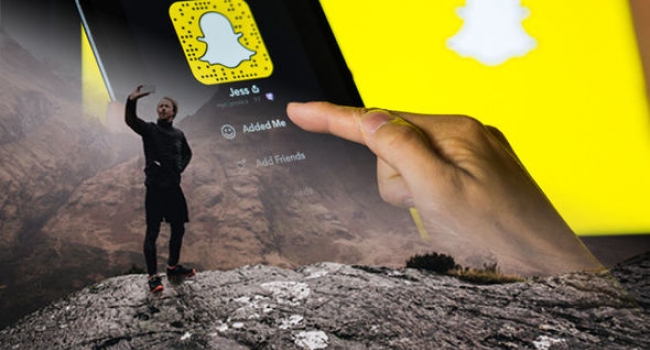People obsessed with taking selfies may have mental health issues say experts
 23:47 16 December, 2017
23:47 16 December, 2017The term was branded as a hoax after it was coined in 2014, but researchers have looked into the phenomenon and say their study "validates its existence.”
The paper, published in the International Journal of Mental Health and Addiction, said: "As with internet addiction, the concepts of selfitis and selfie addiction started as a hoax, but recent research including the present paper has begun to empirically validate its existence."
Researchers from Nottingham Trent University and Thiagarajar School of Management investigated the term and discovered six motivating factors.
These motivating factors included people wanting to increase their self-confidence, seek attention, improve their mood, connect with the environment around them, increase their conformity with the social group around them, as well as being socially competitive.
The experts have also developed a ‘Selfitis Behaviour Scale’ which can be used to assess the severity of the condition.
The scale was developed using a focus groups of 200 participants and the scale was then tested through a survey of 400 participants.
The participants were based in India which is the country with the most Facebook users.
India is also the county with the highest number of deaths as a result of trying to take selfies in dangerous locations.
The findings revealed there are three levels of selfitis.
These ranged from ‘borderline’, where someone takes at least three selfies a day but does not post them on social media, to chronic.
Under the chronic diagnosis a person has the uncontrollable urge to take photos around the clock and post them to social media at least six times a day.
In the middle was acute, where someone takes at least three selfies a day and posts them on social media; and the third was chronic, .
Dr Mark Griffiths, a professor of behavioural addiction at Nottingham Trent University, said: "A few years ago, stories appeared in the media claiming that the condition of selfitis was to be classed as a mental disorder by the American Psychiatric Association.
"Whilst the story was revealed to be a hoax, it didn’t mean that the condition of selfitis didn’t exist.
"We have now appeared to confirm its existence and developed the world’s first Selfitis Behaviour Scale to assess the condition."
Dr Janarthanan Balakrishnan added: "Typically, those with the condition suffer from a lack of self-confidence and are seeking to 'fit in' with those around them, and may display symptoms similar to other potentially addictive behaviours.
"Now the existence of the condition appears to have been confirmed, it is hoped that further research will be carried out to understand more about how and why people develop this potentially obsessive behaviour, and what can be done to help people who are the most affected."
Other technologically related mental health disorders have been identified as ‘nomophobia’ the fear of not being near a mobile phone, ‘technoference’, the constant intrusion of technology in everyday life, and ‘cyberchondria’, feeling ill after searching online for symptoms of illness.
Professor of Psychological Medicine at King’s College London was not convinced by the suggested new condition.
He said: “The research suggests that people take selfies to improve their mood, draw attention to themselves, increase their self-confidence and connect with their environment.
Experts have developed a ‘Selfitis Behaviour Scale’ which can be used to assess the severity
“If that is true then this paper is itself an academic ‘selfie’.”
Dr Mark Salter, a spokesman for The Royal College of Psychiatrists, added: "Selfitis doesn't exist, and it shouldn't exist.
"There is a tendency to try and label a whole range of complicated and complex human behaviours with a single word. But that is dangerous because it can give something reality where it really has none."
Using the statements below, rate them 1 to 5, where 5 is strongly agree, and 1 is strongly disagree.
The higher your score, the greater the likelihood is that you suffer from selfitis.
- Taking selfies gives me a good feeling to better enjoy my environment
- Sharing my selfies creates healthy competition with my friends and colleagues
- I gain enormous attention by sharing my selfies on social media
- I am able to reduce my stress level by taking selfies
- I feel confident when I take a selfie
- I gain more acceptance among my peer group when I take selfies and share them on social media
- I am able to express myself more in my environment through selfies
- Taking different selfie poses helps increase my social status
- I feel more popular when I post my selfies on social media
- Taking more selfies improves my mood and makes me feel happy
- I become more positive about myself when I take selfies
- I become a strong member of my peer group through selfie postings
- Taking selfies provides better memories about the occasion and the experience
- I post frequent selfies to get more ‘likes’ and comments on social media
15 .By posting selfies, I expect my friends to appraise me
- Taking selfies instantly modifies my mood
- I take more selfies and look at them privately to increase my confidence
- When I don’t take selfies, I feel detached from my peer group
- I take selfies as trophies for future memories
- I use photo editing tools to enhance my selfie to look better than others